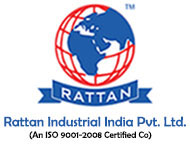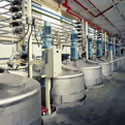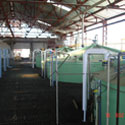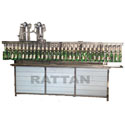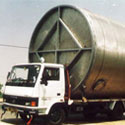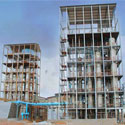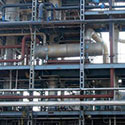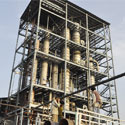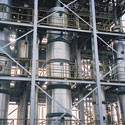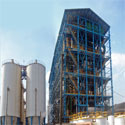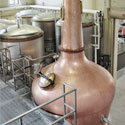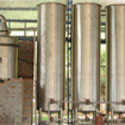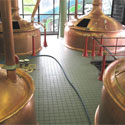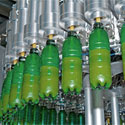- Home ::
- Molasses Based Distillery Plant
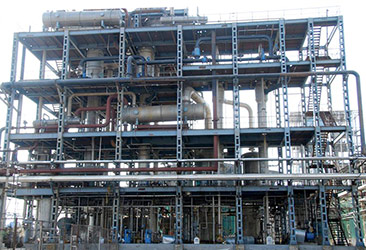
Molasses Based Distillery Plant
DESCRIPTION:
Price: On Request
- Model: R-MBDP
Molasses Based Distillery Plant
- Fermentation
- Distillation
- Rectification
- Dehydration
- Vinasses (Spent Wash) Concentration
Thanks to its expertise in fermentative biology, Rattan can guarantee the best yields and residual sugar rates. Continuous yeast propagation, associated with a bacterial follow-up, allows the reduction of yeast consumption using standard or selected strains. Alcohol fermentation can be run in continuous mode, or in discontinuous mode when cooling water temperature is critical. Continuous Fermentation is generally proposed to facilitate operating tasks. Depending on the raw materials, recycling of yeast is realized in order to reduce Fermentation duration.
The Distillation step concerns the stripping of fermented mash, with production of vinasses (or spent wash) and the alcohol concentrated into phlegm or high degree raw alcohol. The design concept of Rattan allows for adaptation to each type of raw material thus obtaining continuous operation without periodic cleaning. Columns are equipped with several types of internals adapted to functions of degassing, stripping, oil separation and concentration. Resulting from constant development of its Processes. The use of schemes with multiple effects, vapour thermo-compression and coupling with the other units results in a reduction in the global steam consumption of the alcohol production units.
Rectification covers all steps of raw alcohol treatment (phlegm) for the production of Rectified Alcohol (Industrial quality) or Rectified Extra Neutral Alcohol (REN - Superfine - ENA). In order to continuously improve its Rectification process, Rattan set up specific simulation tools allowing the selection of extraction products to be optimized, by considering for each of them the chemical and organoleptic aspects. This development led to a complete mastery of the installations and to impurities management in the various stages of the Process: Hydroselection (or indirect purification), Rectification, Refining and Low Grade Concentration with specific purification stage. So the extraction rates are minimized, while ensuring a high quality of the neutral alcohol produced. The proposed schemes are with multiple effects using columns under vacuum and/or with vapour recompression, leading to the best energy performances.
By the in-depth study of mass transfer in solid media and a unique conception of process automation, Rattan ensures a process having very high reliability. Therefore, units can work consistently without renewal or addition of zeolites. Intended for Bioethanol production, the dehydration process with molecular sieves also applies to dehydrated rectified alcohol production, producing an ENA alcohol quality with very low moisture content. Rattan also owns a Dehydration Process using azeotropic distillation
Rattan processes for vinasse (spent wash) concentration are suited to the various raw materials. Their conception allows the reduction of energy costs and control of fouling. The use of co-current, counter-current or cross-current multiple effects enables the optimization of the concentration-temperature parameters and consequently minimizes fouling. For low concentrations, the use of falling film evaporators independently combined with MVR (Mechanical Vapour Recompression), or coupled with multiple effects, allows operation with a low temperature difference and reduces INVESTMENT. For high concentrations and or viscous products, multi-pass evaporators with forced circulation are used. The proposed schemes are with multiple effects, combined with MVR or thermo-compression of vapours. These can be coupled with other upstream or downstream process units in order to optimize the overall energy consumption of the plant. For materials with high potassium content (e.g. Beets), de-potassification of vinasse (spent wash) is realized by a Rattan concentration / crystallization process.
